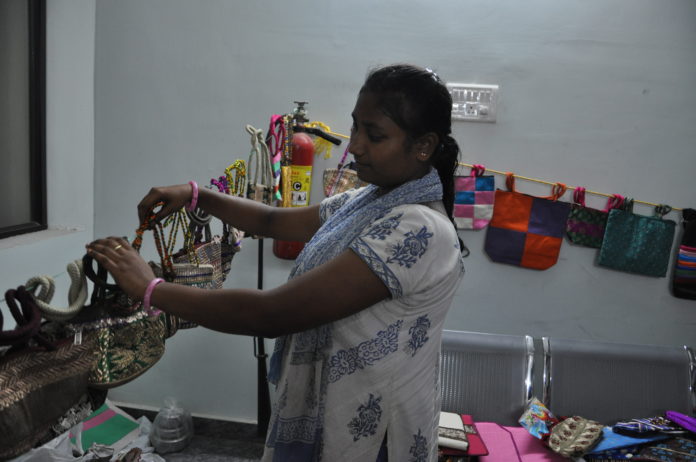By Mary Mwendwa
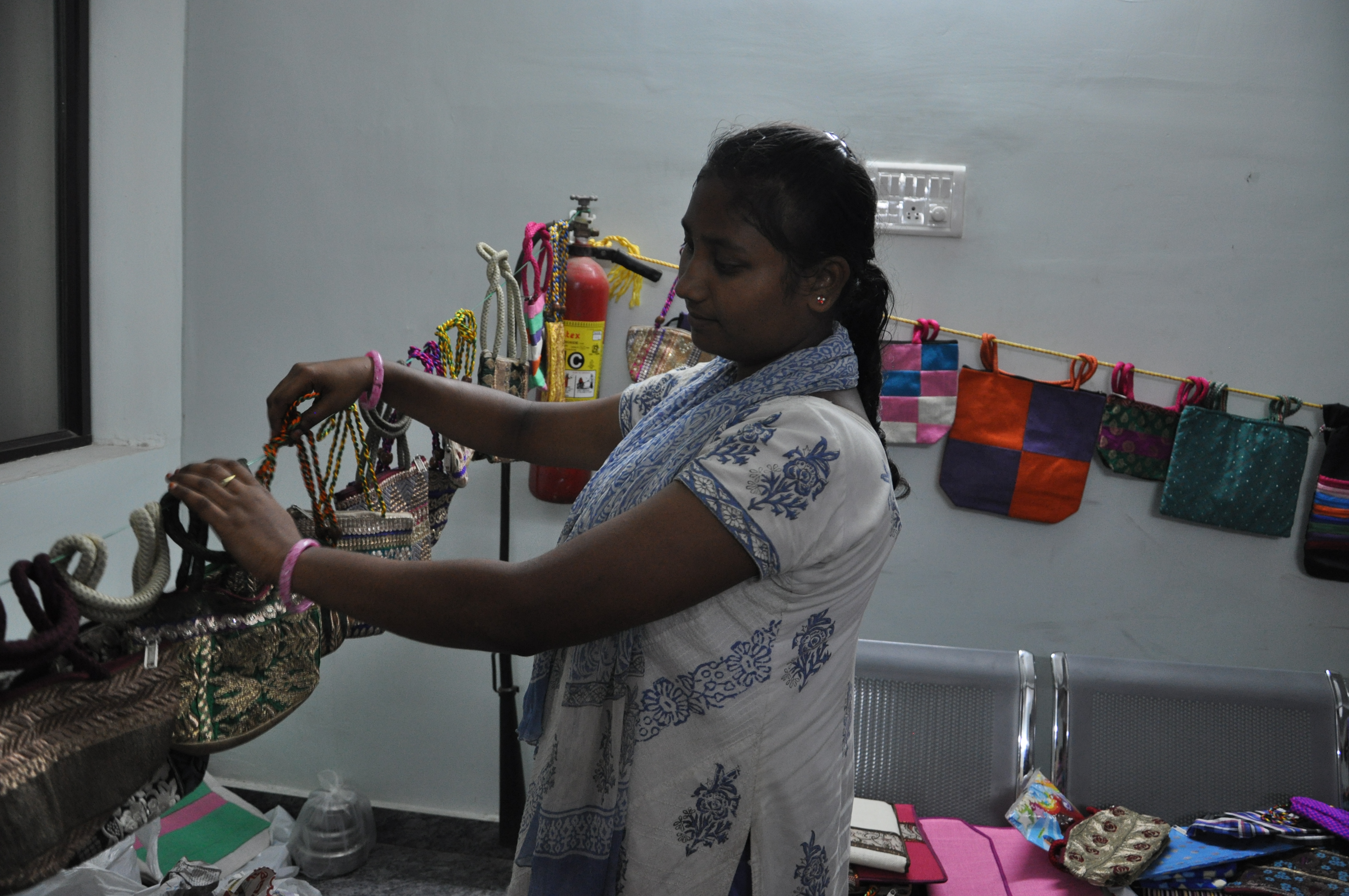
“I was seven years when my mother died. This was a blow because it marked the beginning of my worst experience in life. It all started after neighbors forced my father to remarry.” Begins Kasa Pushpavalli during the interview.
Kasa wondered why her step-mother whom they had never met or interacted at any level disliked her immediately she arrived in their home.
After step-mother had sat pretty well in the homestead, she started beating her without reason and denying her food. She was forced to abandon school.
“My younger sister and l were like outcasts in the family, while my two step-siblings were attended to like Kings. Sadly, all this happened under my father’s watch.”An emotional Kasa continues to narrate.
At the height of mistreatment, Kasa secretly took off from home and found herself on the streets of Guntur District, Andhra Pradesh State of India.
At 14, alone, despaired and no one to care for her, Kasa opted for the only option within her reach-join other young girls in a brothel and started commercial sex work.
The story of Kasa is a sad one. Unfortunately, it is a reflection of millions of young girls being forced into circumstances beyond their control such as commercial sex work as means of survival.
Others are trafficked as casual labourers to work in mines and households in the neighbouring countries, notably, Bangladesh and Nepal. This is as a result of broken families, poverty, drug abuse and substance, peer pressure and school dropouts.
Kasa reveals: “I left home because my step-mother was very hostile to me. If my real mother was alive, l would not have dared to move to the streets because life here is tough especially for young girls.”
“Life in the brothel was not a bed of roses. Hundreds of men come to sleep with you; some pay and other don’t. And, the little you get, you are forced to share with the brothel owner.” She says.
Here, payment for commercial sex services ranges between 5 to 20 Rupees depending on the nature of the client and the brothel you operate from.
She says was also prone to HIV and other Sexually Transmitted Infections (STIs) because there are men who completely refused to use protection like condoms.
“Still, there are others who see you like you are not a human being; they beat and mistreat the young girls. I thank God l was mistreated but never contracted HIV or STIs.” she says.
Kasa’s life took a different turn after the police raided the brothel she operated from and arrested her. At the time of arrest, Kasa had no idea where her destination was bound to be.
She explains: “But somehow, l was relieved because l knew I was safe in the hands of the police.” Together with other girls, Kasa was taken to Jesus Mary Joseph Ujawala Home, that rescues girls involved in commercial sex.
While there, the rescued girls were trained on various life skills such as beading, tailoring, garment making, beading, and embroidery. After training, they started making products they sold to members of the public.
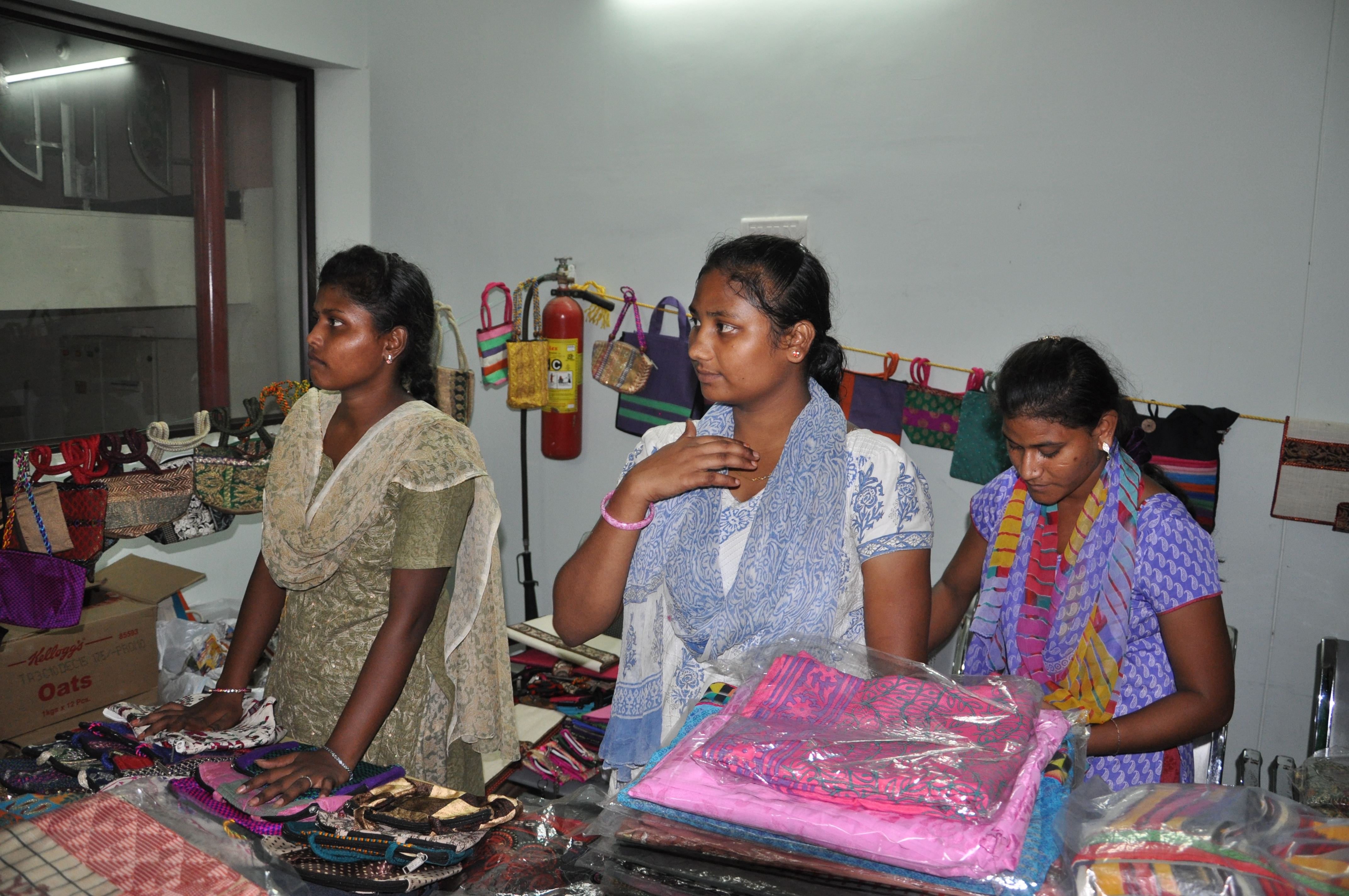
I met Kasa at an exhibition at Acharya Nagarjuna University in Guntur, while displaying handbags, dresses, bracelets and scarfs; neatly and colorfully displayed for sale.
With teary eyes, long hair and a scarf around her neck, she speaks very few words in English. Our conversation was handled by a translator Sister Rosalina, Project Director, JMJ Ujawala Home Nambur.
Sister Rosalina discloses that they have 56 girls at their home currently. “These girls are brought to us in a bad state. Some are usually very traumatized and sick. We, therefore, arrange for counseling services and other forms of treatment to bring them back to normal life.”
Sister Rosalina further reveals how they work closely with policemen. A good example is Kasa and other girls who were rescued by police from the brothels and brought to them.
Missing cases and some girls trying to run away from their facility are some of the challenges they face.
However, organizations like JMJ have been instrumental in child protection issues by helping lobby for mobile courts and other systems that would see children especially girls get protection from sexual violations.
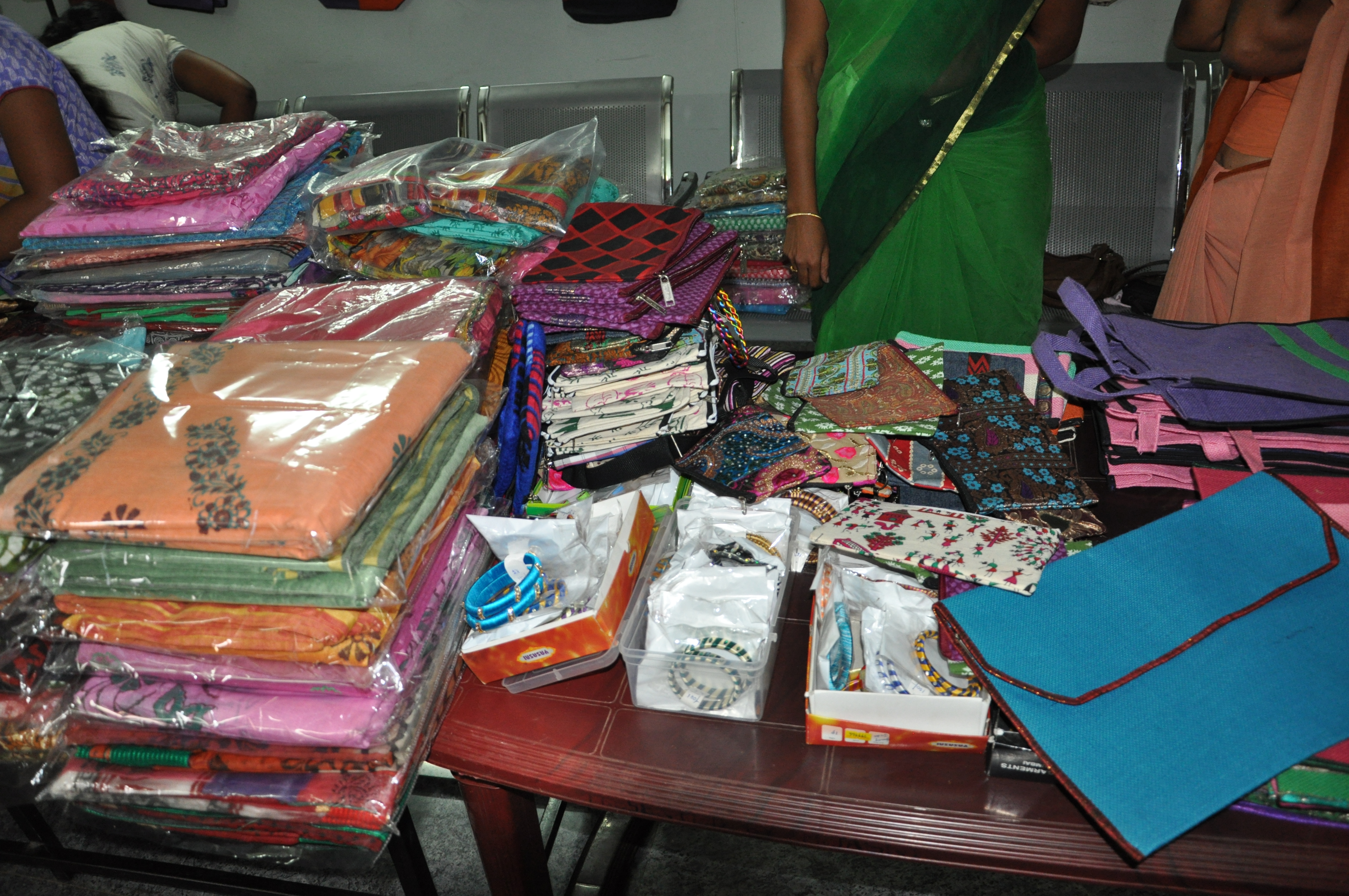
K.Vijayalakshmri, Headteacher, Rajasthani Hindi Vidiyalaya School confirms there are many girls at the age of 13 -15 drop out of school and get married or disappear without any trace.
“It is very difficult to handle some of these issues because parents of such girls never want to cooperate to enable us to get the girls and bring them back to school. For those trafficked as slaves in Bangladesh or Nepal nobody is willing to give information on their whereabouts. I try my best to sensitize parents to be keen on their girls so that they remain in school. It is tough for me but I Just try.” She says.
The National Human Rights Commission of India reveals over 40,000 children are reported to be missing every year out of which 11,000 remain untraced. A trend that is worrying and needs urgent interventions to save children from this vice.
Ravi Sebastian, New beginnings Charitable Trust in Vijayawada notes that there are thousands of Ngo’s operating in India.” Our organization is working with different stakeholders where 60 percent of the people we support are girls.”
Ravi confirms that child trafficking and sexual violence among women and girls has been one of the biggest challenges his organization encounter on regular basis.
“We do not have accurate data on child trafficking and therefore it becomes difficult to plan on the kind of interventions we need to put in place. However, we have set up children parliaments in villages where children are used to monitor other children secretly and give us information through phone calls.”
Ravi says that Vijayawada is becoming a hub for prostitution and child trafficking. Prostitution in India is not legal and those caught by the long arm of the law get prosecuted.
He points out some challenges in trying to help fight child trafficking. “It is very difficult to get first-hand information about missing girls. At times we get them at Railway stations, raise alarm and also parents are lured to think that their children are going to work yet they land in other countries as sex slaves. Two things do happen in this scenario; either these girls die in unknown circumstances or they contract HIV/AIDS.” Ravi alludes.
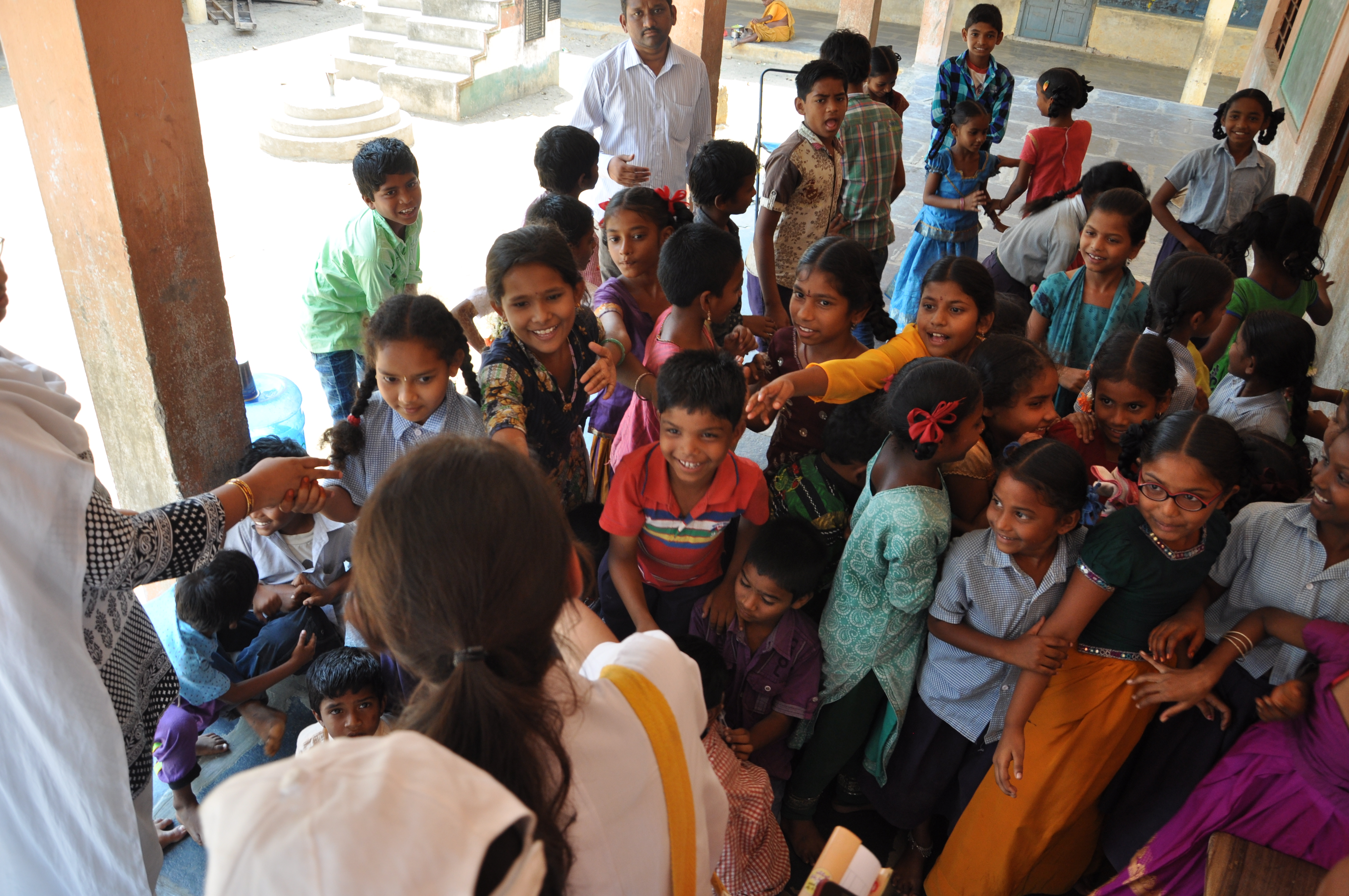
Other reports from the Trafficking in Persons Report 2014 indicate that over 20 million persons from various forms of exploitation were trafficked worldwide with an estimated 15.5 Billion Dollars generated in the Asia region.
For example, in India, 5 out of 10 girls between ages of 15 -19 were victims of sexual violence.
Bangladesh and Nepal remain the biggest recipients of child trafficking where girls end up in brothels and domestic labour. The borders are free to cross with no identification documents needed, hence creating a loop hole for the traffickers.
According to the Protocol to Prevent, Suppress and Punish Trafficking in Persons, Especially Women and Children (2000), child trafficking is the recruitment, transportation, transfer, harbouring or receipt of children for the purpose of exploitation. It is a violation of their rights, their well-being and denies them the opportunity to reach their full potential.
While recent research has yielded information on the nature of child trafficking, little is known about its magnitude. The International Labour Organization’s 2002 estimation of 1.2 million children being trafficked each year remains the reference (Every Child Counts, New Global estimate on Child Labour).
To reduce vulnerabilities that make children susceptible to trafficking, International organizations like UNICEF assists governments in strengthening laws, policies, and services including legislative review and reforms, establishing minimum labour standards, and supporting access to education.

